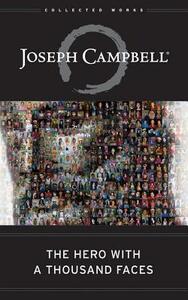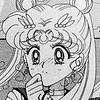Take a photo of a barcode or cover
emotional
funny
hopeful
informative
inspiring
reflective
medium-paced
informative
reflective
slow-paced
challenging
informative
inspiring
mysterious
reflective
slow-paced
Удивительная, многогранная книга. Я искала встречи с ней, чтобы понять принципы построения мифа — для работы над сюжетом — но в ней обнаружился и источник любви (к миру, к людям, к истории), и источник надежды, который помогает смиряться с существованием страданий и боли, и формулировка проблем, которые предстоит разрешать современным героям, и много удивительных частностей.
good lord, thank you
this means I'm finishing writing my thesis today
one step towards my graduation folks
this means I'm finishing writing my thesis today
one step towards my graduation folks
I respect the enormous influence this book had while also lamenting all the Freudian claptrap I had to endure while reading it. The author excels best when focusing on myths, which is after all the premise of the book, but too often delves into pseudopsychology in an attempt to prove a point about random people's dreams.
The problem is that so much of its basis around Freudian psychology has since been proven nonsense. Long paragraphs delving into the sexual jealousy and symbolism around boys and their mothers and their circumcisions. The book is also intensely misogynistic, which is a staple of the time of course, but it gets harder to bear when it makes up a third of the text.
Despite this, Campbell does manage to make some interesting points about mythology across the world, and is clearly well-versed in the subject. At times he makes reaches to fit everything into his narrow mold of identity and growth, but there's no doubt he has made something that has gained much respect and merit.
Reading this has also made me realize how much people misinterpret the Hero's Journey, treating it as a rigid structure for everything when not every stage is even meant to be included at the same time. It's not a "how to write a story" guide but an observation on world mythology and the universal human values they expose.
The problem is that so much of its basis around Freudian psychology has since been proven nonsense. Long paragraphs delving into the sexual jealousy and symbolism around boys and their mothers and their circumcisions. The book is also intensely misogynistic, which is a staple of the time of course, but it gets harder to bear when it makes up a third of the text.
Despite this, Campbell does manage to make some interesting points about mythology across the world, and is clearly well-versed in the subject. At times he makes reaches to fit everything into his narrow mold of identity and growth, but there's no doubt he has made something that has gained much respect and merit.
Reading this has also made me realize how much people misinterpret the Hero's Journey, treating it as a rigid structure for everything when not every stage is even meant to be included at the same time. It's not a "how to write a story" guide but an observation on world mythology and the universal human values they expose.
Gosh, this was weirder than I was expecting. I’d heard about the hero’s journey countless times and could have told you most of the sequence from memory, but I’d never read the source text. I was not expecting the book to be so steeped in midcentury psychology, delving into dream analysis and pseudoscientific Freudian ideas about Oedipal complexes to try and explain historical mythology.
The snippets of folklore from around the world were interesting, but unfortunately I found their presentation unfocused. His broader writings - the summary of the hero’s journey, or the essays on the role of myth in contemporary life that close out this edition of the book - were indeed far more compelling (quote below). Unless you have a very particular interest in myth (or psychoanalysis), save yourself the time and just read a summary of the hero’s journey online.
The snippets of folklore from around the world were interesting, but unfortunately I found their presentation unfocused. His broader writings - the summary of the hero’s journey, or the essays on the role of myth in contemporary life that close out this edition of the book - were indeed far more compelling (quote below). Unless you have a very particular interest in myth (or psychoanalysis), save yourself the time and just read a summary of the hero’s journey online.
The way to become human is to recognize the lineaments of God in all of the wonderful modulations of the face of man.
Loses a star for depending too much on Jung when Freud should've been enough.
Key points:
-Makes the leap from Unconscious to universal via archetypes - too big of a leap
-shows inversion of group myth leading individuals as a group to individuals lead only by interest being cutoff from mythic unconscious so left to float in ambiguity
2nd Reading
On the second time through this really starts to sound like something coming out of that new age-y period of the eighties when it was all about holistic solutions for modernity's obsession with the individual. There are better solutions.
Key points:
-Makes the leap from Unconscious to universal via archetypes - too big of a leap
-shows inversion of group myth leading individuals as a group to individuals lead only by interest being cutoff from mythic unconscious so left to float in ambiguity
2nd Reading
On the second time through this really starts to sound like something coming out of that new age-y period of the eighties when it was all about holistic solutions for modernity's obsession with the individual. There are better solutions.
Read partway through, before deciding much of it is more dry than I want to deal with. The information I was really after is handled by worksheets I found on Pinterest, oops :/
challenging
informative
mysterious
reflective
slow-paced



